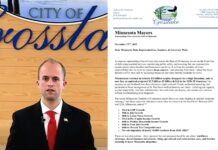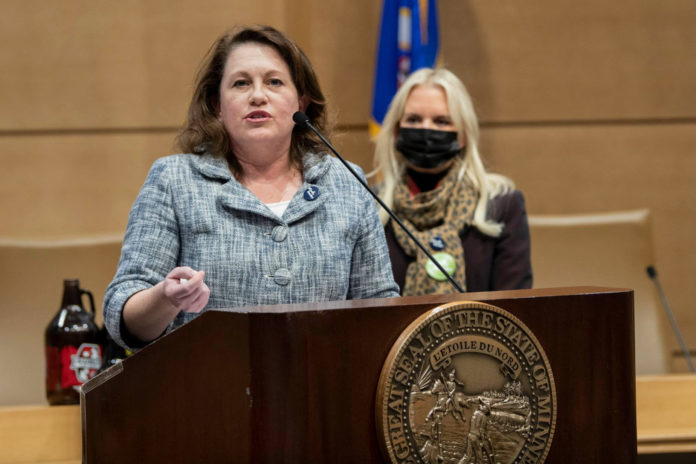(The Center Square) — The Office of the Legislative Auditor released an audit Monday finding the Minnesota Department of Human Services’ (DHS) Behavioral Health Division (BHD) had inadequate internal controls and violated safeguards to prevent fraud and abuse.
“Since the creation of the Behavioral Health Division in early 2018, DHS did not analyze the risks of fraud, waste, abuse, and noncompliance with legal requirements related to oversight of BHD grants,” auditors wrote.
The 56-page audit released Monday found BHD officials didn’t evaluate numerous control policies to ensure compliance with Office of Grants Management (OGM) policies and state and federal laws.
Although Minnesota has enacted safeguards to track grants, the audit says DHS didn’t follow those protocols. In fiscal year 2020, BHD doled out 710 grants for nearly $85 million, the audit noted.
However, “BHD did not have an adequate process to assign employees and accurately track grant agreements managed by the division,” the audit found.
The division also lacked a single master roster of all BHD grants.
“We concluded that the pervasive lack of effective internal controls and leadership in the Behavioral Health Division led to the division’s noncompliance with state personnel policies, OGM policies and procedures, and legal requirements related to recordkeeping and grant management.”
Human Services Commissioner Jodi Harpstead, who took over in 2019, responded.
“After my first 90 days as commissioner, I said that some areas of DHS are soft around the edges, and we need to work on crossing the T’s and dotting the I’s,” Harpstead said in a statement. “We’ve spent the past year working intensely on evaluating our processes and putting the pieces in place to start implementing changes. The auditor’s review found the same issues we’ve identified in our own evaluation of process controls in the department. The report makes us more confident that our plan moving forward is the right plan.”
DHS said it’s pursuing improvement in BHD.
When asked, BHD representatives reportedly often couldn’t provide essential documents.
“Without improved oversight of employee skills, job duties, and assignments, BHD is at higher risk of not complying with OGM policies and improperly administering grant dollars,” auditors wrote.
Sen. Michelle Benson, R-Ham Lake, told reporters Monday that lawmakers have long been concerned with DHS impropriety. The report analyzed 33 months of BHD work and found wide-ranging concerns, which was “what we expected,” Benson said.
Benson called for a culture change in DHS.
“It is going to require a better internal audit division to help design internal controls to make sure that hard-earned taxpayer dollars are going to the people we intended it to go to and that when the federal government entrusts us with even more taxpayer money, that it’s being handled in a way that meets the needs of Minnesotans and doesn’t result in penalties from the federal government for not being in compliance,” Benson said.
For example, auditors reviewed 25 out of 102 grant agreements for mitigating conflict of interests and found “deficiencies” in every deal. In 21 of the 25, BHD provided no conflict of interest documents.
“Among the samples with the deficiencies observed in our testing, BHD grant evaluators did not adequately complete and retain conflict of interest forms for grants totaling at least $7,895,755.32,” the audit reads.
“Noncompliance with conflict of interest legal requirements leaves the state open to potential fraud and waste,” it says.
In 10 of 13 grant agreements analyzed, BHD violated state requirements to determine whether grant recipients were financially stable before giving away taxpayer money.
BHD issued grants totaling at least $1.9 million in which BHD did not comply with the OGM requirement first to review the grantee’s financial stability.
While some lawmakers have advocated for breaking up DHS, Benson said, “now isn’t the time.”











